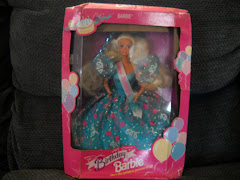Get your car prepared. Make sure your tires are filled with the proper amount of air and that they are aligned properly. Take any extra weight from your trunk or even take off your luggage rack if you do not use it. In the winter, remember that snow and ice do weigh alot, so remove snow and icycles before you drive off. Extra weight means extra gas is used to get the car to move. Get a tune up. If all the parts are working correctly, you will spend less on gas. Change filters and oil regularly.
Go to the gas station in the morning while it is cool. Cooler gas is more compact so you get more for your money. Fill up with the octane you really need. Your car may not need the higher octane, so you may save some pennies by going lower. Check your owners manual for this information.
Now for when you are on the road:
Plan your trip. Make sure you know where you are going and plan the best route. You don't want to stop and start a lot if possible and you don't want rough roads. You want to run all your errands on one go-around so have a list of all you need to get done. Car pool if you can. Does your best friend need to go grocery shopping? Do it together. It is more fun that way anyway.
Drive at the posted speed limits. The faster you go, the more fuel is used. Also, paying for tickets is not a frugal thing to do.
Use your overdrive gear while traveling on the highway
Use cruise control to control constant speed and reduce fuel consumption.
Don't tailgate. All the braking isn't good for gas or tires. Hitting the car in front of you isn't good for your wallet or your insurance either.
Don't idle your car unneccesarily. Turn off the car if you have a long wait. Put your car in neutral if you are at a long red light, traffic stop or in a fast food line during lunch time.
Turn off your air conditioner and open windows if you are traveling at speeds under 40MPH. Any higher, it causes air drags and makes your car work too hard, which causes more gas consumption.
Park in the shade when possible, and try to park forward. Reverse uses more gas.
The Missing Tool Money Can't Buy
15 years ago






No comments:
Post a Comment